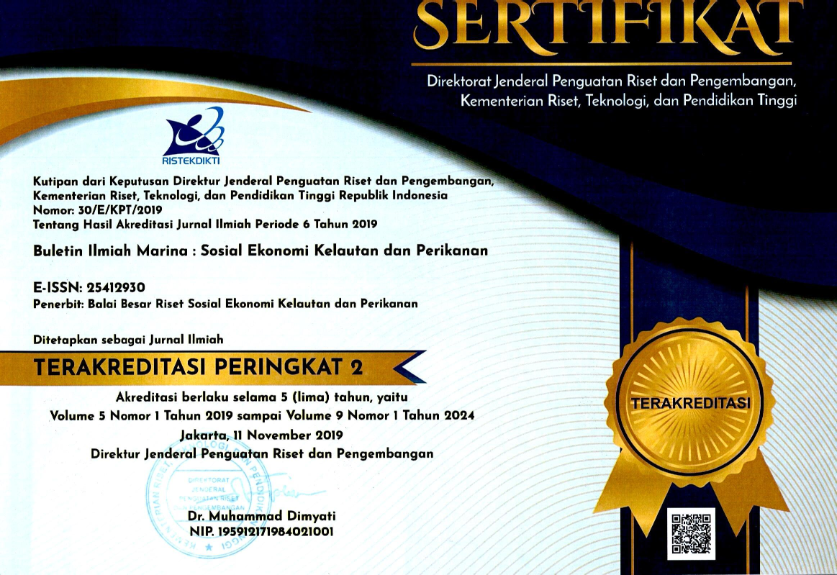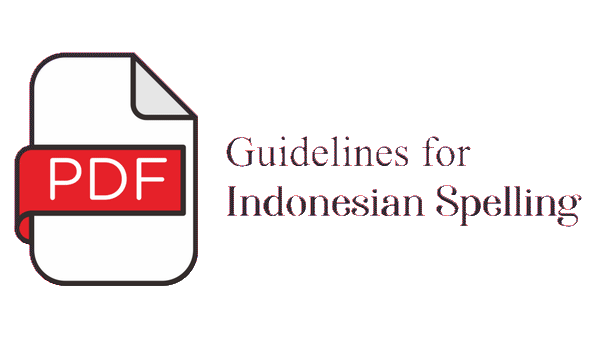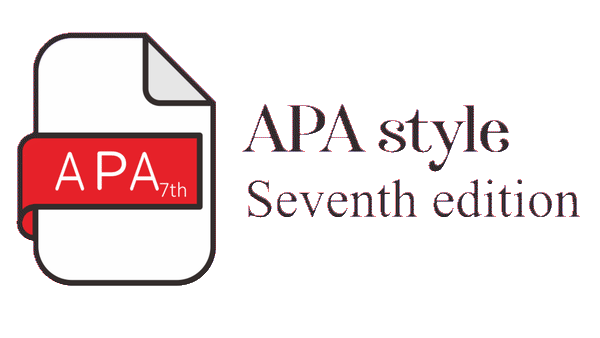Minat Berwisata Generasi Milenial ke Ekowisata Pesisir Clungup Mangrove Conservation (CMC) Tiga Warna di Kabupaten Malang, Jawa Timur
Abstract
Perpaduan antara konsep pariwisata dan konservasi menjadi tren pengelolaan wisata masa depan. Ekowisata Clungup Mangrove Conservation (CMC) di Kabupaten Malang, Indonesia merupakan salah satu community based ecotourism yang konsisten menerapkan prinsip ekowisata. Adanya perbedaan kepedulian lingkungan di antara pengunjung ataupun masyarakat, termasuk generasi milenial, menyebabkan minat berkunjung ke destinasi ekowisata CMC yang telah menerapkan prinsip ekowisata pun belum seberapa pulih. Untuk itu, penelitian ini bertujuan untuk (1) menganalisis peran kepedulian lingkungan generasi milenial dalam menentukan minat berkunjung dan (2) menganalisis peran konstruk TPB (theory of planned behavior) dalam memediasi pengaruh kepedulian lingkungan terhadap minat berkunjung. Penelitian eksplanatori ini menggunakan metode survei terhadap pengunjung milenial domestik ekowisata pesisir CMC Tiga Warna pada bulan Mei—Juni 2022. Responden penelitian ini sebanyak 628 pengunjung. Metode analisis data menggunakan SEM-WarpPLS. Hasil penelitian menunjukkan bahwa adanya kepedulian lingkungan generasi milenial dapat menentukan minat berkunjung ke ekowisata pesisir karena efektifnya peran mediasi konstruk TPB (sikap, norma subjektif, dan persepsi kontrol perilaku). Temuan riset ini memperluas penerapan TPB karena menempatkan konstruk TPB sebagai mediating variable peran kepedulian lingkungan terhadap minat kunjungan wisatawan milenial ke ekowisata pesisir. Perlu peningkatan persepsi kontrol perilaku sebagai prediktor utama minat berwisata, disusul dengan peningkatan norma subjektif ataupun sikap. Pemerintah daerah perlu terus menjaga situasi perekonomian agar kondusif sehingga memampukan ekonomi masyarakat termasuk untuk pengeluaran berwisata, membuat pengunjung yakin, mau, dan mampu, serta memiliki sumber daya yang cukup mendukung pengeluaran untuk berwisata.
Title : Millennial Visit Intention to the Clungup Mangrove Conservation (CMC) Tiga Warna Coastal Ecotourism in Malang Regency, East Java
The integration of tourism with conservation principles is a future tourist management trend. Clungup Mangrove Conservation (CMC) ecotourism in Malang Regency, Indonesia, is a community-based ecotourism that adheres to the ecotourism idea. The CMC ecotourism destination, which has applied the philosophy of ecotourism that has not yet recovered, attracts visitors, including millennials, because of their environmental concerns. For this reason, this study aims to (1) analyze the role of the millennial generation’s environmental concern in determining the visit intention, (2) analyze the role of the TPB construct (Theory of Planned Behavior) in mediating the influence of environmental concern on the visit intention. This explanatory research uses a survey method for domestic visitors to the “CMC Tiga Warna” coastal ecotourism in May-June 2022. These research respondents were 628 domestic visitors. The data analysis method uses SEM-WarpPLS. Due to the successful involvement of TPB construct mediation (attitudes, subjective norms, and perceptions of behaviour control), millennials’ environmental concerns may impact their interest in coastal ecotourism. TPB’s construct position as a mediator variable between environmental concern and millennial visitors’ visit intention in coastal ecotourism boosted its utilisation. As the main predictor of visit intention, behavioural control must be increased, followed by subjective norms and attitudes. Local governments must keep the economy healthy to keep travel expenses rising. They also require enough money for trip.
Keywords
Full Text:
PDFReferences
Abidin, Z., Setiawan, B., Muhaimin, A.W., & Shinta, A. (2021). The role of coastal biodiversity conservation on sustainability and environmental awareness in mangrove ecosystem of Southern Malang, Indonesia. Biodiversitas, 22(2). https://doi.org/10.13057/biodiv/d220217.
Abidin, Z., Handayani, W., Zaky, E.A., & Faturrahman, A.D. (2022). Perceived risk and attitude’s mediating role between tourism knowledge and visit intention during the COVID-19 pandemic: Implementation for coastal-ecotourism management. Heliyon, e10724. https://doi.org/https://doi.org/10.1016/j.heliyon.2022.e10724.
Ahmad, W., Gon, W., Anwer, Z., & Zhuang, W. (2020). Schwartz personal values, theory of planned behavior and environmental consciousness:
How tourists’ visiting intentions towards eco-friendly destinations are shaped? Journal
of Business Research, 110(November 2018), 228–236..https://doi.org/10.1016/j.jbusres.2020.01.040.
Ajzen, I. (1991). The theory of planned behavior. Organizational Behavior and Human Decision Processes..https://doi.org/10.1016/0749-5978(91)90020-T.
Ajzen, I. (2005). Attitudes, personality and behavior (2nd edition). Open University Press‐McGraw Hill Education.
Al Mamun, A., Mohamad, M.R., Yaacob, M.R. Bin, & Mohiuddin, M. (2018). Intention and behavior towards green consumption among low-income households. Journal of Environmental Management..https://doi.org/10.1016/j.jenvman.2018.08.061
B. DiPietro, R., Cao, Y., & Partlow, C. (2013). Green practices in upscale foodservice operations. International Journal of Contemporary Hospitality Management..https://doi.org/10.1108/ijchm-may-2012-0082.
Butarbutar, D. J. A. (2015). Analisis kualitas dan kepuasan pengguna terhadap keinginan mengunjungi kembali web pada situs web Kapanlagi.Com. Universitas Widyatama, 12.
Chaudhary, R., & Bisai, S. (2018). Factors influencing green purchase behavior of millennials in India. Management of Environmental Quality: An International Journal, 29(5), 798–812. https://doi.org/10.1108/MEQ-02-2018-0023.
Chen, M. F., & Tung, P.J. (2014). Developing an extended theory of planned behavior model to predict consumers’ intention to visit green hotels. International Journal of Hospitality Management. https://doi.org/10.1016/j.ijhm.2013.09.006.
Choi, D., & Johnson, K.K.P. (2019). Influences of environmental and hedonic motivations on intention to purchase green products: An extension of the theory of planned behavior. Sustainable Production and Consumption. https://doi.org/10.1016/j.spc.2019.02.001.
Corral, C.M. (2003). Sustainable production and consumption systems - Cooperation for change: Assessing and simulating the willingness of the firm to adopt/develop cleaner technologies. The case of the in-Bond industry in Northern Mexico. Journal of Cleaner Production, 11(4), 411–426..https://doi.org/10.1016/S0959-6526(02)00063-X.
Freire da Silva, P.A. (2014). Green chemistry, green engineering and eco-innovation towards a more sustainable petrochemical industry: Determinants of Brazilian companies´ engagement in GCE-based eco-innovation processes. 484.
Haines, R., Street, M.D., & Haines, D. (2008). The influence of perceived importance of an ethical issue on moral judgment, moral obligation, and moral intent. Journal of Business Ethics, 81(2), 387–399. https://doi.org/10.1007/s10551-007-9502-5.
Han, H., Hsu, L.T. (Jane), & Sheu, C. (2010). Application of the theory of planned behavior to green hotel choice: Testing the effect of environmental friendly activities. Tourism Management. https://doi.org/10.1016/j.tourman.2009.03.013.
Handriana, T., & Ambara, R. (2016). Responsible environmental behavior intention of travelers on ecotourism sites. Tourism and Hospitality Management, 22(2), 135–150. https://doi.org/10.20867/thm.22.2.4.
Hartmann, P., & Apaolaza-Ibáñez, V. (2012). Consumer attitude and purchase intention toward green energy brands: The roles of psychological benefits and environmental concern. Journal of Business Research. https://doi.org/10.1016/j.jbusres.2011.11.001.
Hsu, C.L., Chang, C.Y., & Yansritakul, C. (2017). Exploring purchase intention of green skincare products using the theory of planned behavior: Testing the moderating effects of country of origin and price sensitivity. Journal of Retailing and Consumer Services. https://doi.org/10.1016/j.jretconser.2016.10.006.
Iskandar, A., & Saragih, R. (2018). The influence of attitude toward the behavior , subjective norms, and perceived behavioral control on whistle- blowing intention and. Journal of Finance and Accounting, 9(18), 1–5.
Kim, Y.J., Njite, D., & Hancer, M. (2013). Anticipated emotion in consumers’ intentions to select eco-friendly restaurants: Augmenting the theory of planned behavior. International Journal of Hospitality Management. https://doi.org/10.1016/j.ijhm.2013.04.004.
Klein, F., Emberger-Klein, A., Menrad, K., Möhring, W., & Blesin, J.M. (2019). Influencing factors for the purchase intention of consumers choosing bioplastic products in Germany. Sustainable Production and Consumption. https://doi.org/10.1016/j.spc.2019.01.004.
Krejcie, R.V, & Morgan, D.W. (1970). Determining sample size for research activities. Educational and Psychological Measurement, 30(3), 607–610.
Kushwah, S., Dhir, A., & Sagar, M. (2019). Ethical consumption intentions and choice behavior towards organic food. Moderation role of buying and environmental concerns. Journal of Cleaner Production, 236, 117519. https://doi.org/10.1016/j.jclepro.2019.06.350.
Lestari, P., & Trihadiningrum, Y. (2019). The impact of improper solid waste management to plastic pollution in Indonesian coast and marine environment. In Marine Pollution Bulletin. https://doi.org/10.1016/j.marpolbul.2019.110505
Paul, J., Modi, A., & Patel, J. (2016). Predicting green product consumption using theory of planned behavior and reasoned action. Journal of Retailing and Consumer Services. https://doi.org/10.1016/j.jretconser.2015.11.006.
Pratiwi, Y. R. (2022, 24 Pebruari). Pemulihan perekonomian indonesia setelah kontraksi akibat pandemi Covid-19. https://www.djkn.kemenkeu.go.id/kpknl-banjarmasin/baca-artikel/14769/Pemulihan-Perekonomian-Indonesia-Setelah-Kontraksi-Akibat-Pandemi-Covid-19.html
Sarabia-Andreu, F., & Sarabia-Sánchez, F.J. (2018). Do implicit and explicit attitudes explain organic wine purchase intention?: An attitudinal segmentation approach. International Journal of Wine Business Research. https://doi.org/10.1108/IJWBR-09-2017-0063.
Schniederjans, D.G., & Starkey, C.M. (2014). Intention and willingness to pay for green freight transportation: An empirical examination. Transportation Research Part D: Transport and Environment. https://doi.org/10.1016/j.trd.2014.05.024.
Setyadi, I.A., Hartoyo, Maulana, A., & Muntasib, E.K.H. (2012). Strategi pengembangan ekowisata di Taman Nasional Sebangau Kalimantan Tengah. In Jurnal Manajemen & Agribisnis: Vol. Vol. 9 (Issue 1, pp. 1–12). https://doi.org/DOI: 10.1016/j.commatsci.2005.01.004.
Sheppard, B.H., Hartwick, J., & Warshaw, P.R. (1988). The theory of reasoned action: a meta-analysis of past research with recommendations for modifications and future research. Journal of Consumer Research, 15(3), 325. https://doi.org/10.1086/209170.
Solimun, Fernandes, R., Nurjannah, Ahmad, A., & Nurjannah. (2017). Metode stastika multivariat: Permodelan persamaan structural (sem) pendekatan WarpPLS. UB Press.
Sreen, N., Purbey, S., & Sadarangani, P. (2018). Impact of culture, behavior and gender on green purchase intention. Journal of Retailing and Consumer Services, 41, 177–189.
Sun, Y., & Wang, S. (2019). Understanding consumers’ intentions to purchase green products in the social media marketing context. Asia Pacific Journal of Marketing and Logistics, 32(4), 860–878. https://doi.org/10.1108/APJML-03-2019-0178.
Supranto, J. (2006). Pengukuran tingkat kepuasan pelanggan untuk menaikkan pangsa pasar. Rineka Cipta.
Verma, V. K., & Chandra, B. (2018). An application of theory of planned behavior to predict young Indian consumers’ green hotel visit intention. Journal of Cleaner Production, 172(3), 1152–1162. https://doi.org/10.1016/j.jclepro.2017.10.047.
Wang, J., Wang, S., Wang, Y., Li, J., & Zhao, D. (2018). Extending the theory of planned behavior to understand consumers’ intentions to visit green hotels in the Chinese context. International Journal of Contemporary Hospitality Management, 30(8), 2810–2825. https://doi.org/10.1108/IJCHM-04-2017-0223.
Werner, P. (2004). Reasoned action and planned behavior. In S.J. Peterson and T.S. Bredow (eds), Middle range theories: Application to Nursing Research, Lippincott Williams and Wilkins.
Yadav, R., & Pathak, G. S. (2016). Young consumers’ intention towards buying green products in a developing nation: Extending the theory of planned behavior. Journal of Cleaner Production. https://doi.org/10.1016/j.jclepro.2016.06.120.
Yadav, R., & Pathak, G. S. (2017). Determinants of consumers’ green purchase behavior in a developing nation: Applying and extending the theory of planned behavior. Ecological Economics. https://doi.org/10.1016/j.ecolecon.2016.12.019.
YBAS. (2020). Profil ekowisata CMC Tiga Warna, Kabupaten Malang.
DOI: http://dx.doi.org/10.15578/marina.v9i2.11907
Refbacks
- There are currently no refbacks.
Indexed by:
---------------------------------------------------------------------------------------
Published by
Balai Besar Riset Sosial Ekonomi Kelautan dan Perikanan
in collaboration with
Indonesian Marine and Fisheries Socio-Economics Research Network

This work is licensed under a Creative Commons Attribution-NonCommercial-ShareAlike 4.0 International License.

























